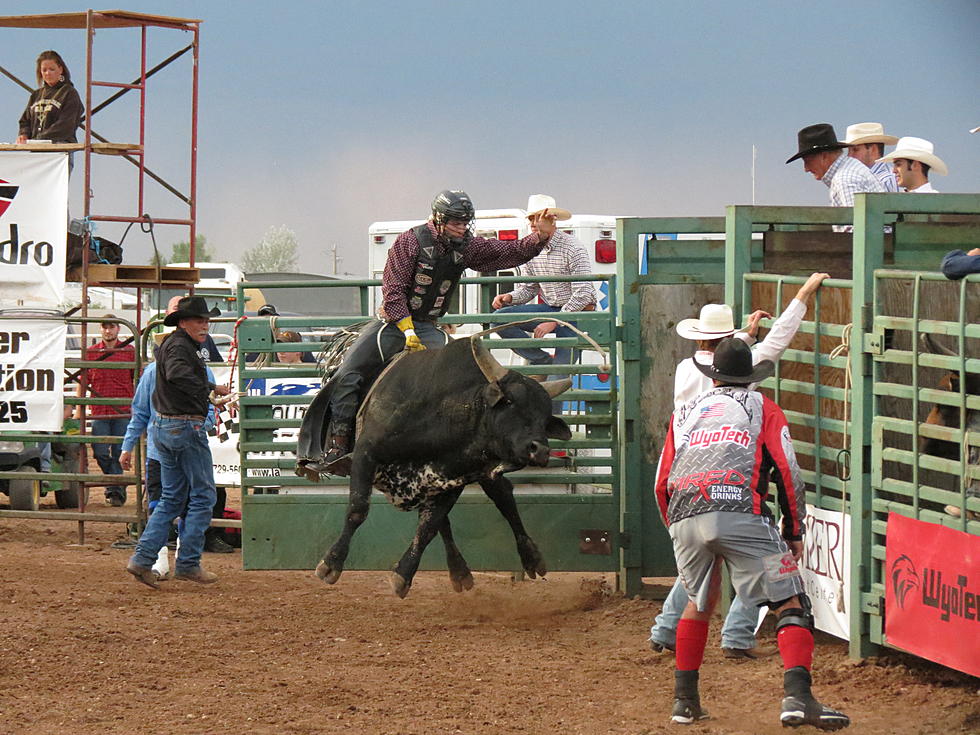
Gov. Gordon’s Opinion Piece on Limited Government, Vaccine Mandate
Governor Mark Gordon recently released an opinion piece speaking about his thoughts on limited government and vaccine mandates.
In the piece, he begins by stating the following,
"Wyoming has always been about small government and limited regulations. These are core values to me. I remember well my father working to protect Wyoming’s Right to Work laws. Our family eagerly supported Malcolm Wallop’s successful Senate bid in 1976. He was unshakeable in his conservatism and fought constantly against government overreach. In fact, one of the most memorable political ads of all time was Malcolm taking the Occupational Safety and Health Administration to task for ridiculous regulations. It featured a puzzled cowboy preparing to head out on the range, and having to strap a portable toilet to a pack horse because of OSHA’s overregulation. It was a great ad that highlighted wrongheaded regulations crafted in DC that lack awareness of what makes sense on the ground."
the governor then went on the further comment on big government and OSHA, which is in the process of forming regulations around the vaccine mandate, per President Joe Biden.
"Big government is cancer. As a conservative Republican I have, and always will support the rights of private individuals and their rights as business owners to operate their enterprise as they see fit. We need fewer regulations, not more. I oppose growing government interference.
"As I write this, OSHA is preparing new rules that purport to shape how businesses must operate across the country. In this instance, it is a mandate that employers require that their employees get a COVID-19 vaccine. And there are other hair-brained ideas on the way, including those that would force health care facilities to require vaccinations in order to receive Medicare and Medicaid reimbursements. Holding our seniors and Medicaid recipients hostage is just plain wrong. "

Gov. Gordon then stated that, though he knows that there are limits to which he can do regarding it, he believes that this is for the good,
"As chief executive of Wyoming, I’m acutely aware of the limits imposed on my office by our Constitution and the statutes passed by our Legislature. Wyoming’s statutes do not provide the Governor with unlimited power. For example, Wyoming’s brand of Executive Orders (EOs) do not give the Governor the same tools that the Texas Legislature has given their Governor. Because Wyoming’s Governor does not have statutory authority to enforce an EO similar to Texas’ Governor, I have not issued one. Frankly, I am not disappointed because I believe in my core that Wyomingites don’t want a supreme executive in the first place. Government must be held in check.
"The Wyoming Legislature has the authority to call itself into session when they are so inclined. Their process is not easy, and it isn’t meant to be. Wyoming prides herself on a citizen legislature made up of men and women with jobs, businesses, and obligations that are not wholly political in nature. We are blessed that we do not have a “political class” as found in New York, California, or Illinois. Wyoming has avoided that pitfall by limiting the days that our Legislature can be in session, thereby assuring that our legislators continue their other work, and concentrate on politics as a service.
"The Legislature is following its process. I look forward to continuing to work with them to see that we protect the rights of Wyoming individuals and businesses. It is, and always has been, a delicate balance."
In the end, Gov. Gordon says that he is proud of the state's commitment to letting businesses and citizens make their own decisions.
"Ultimately, I remain committed to conservative Republican principles: minimal government closest to the people, individual liberty, and the freedom to operate your business unconstrained from government mandates. I will always stand for the Constitution and the rule of law. I was proud when former President Donald Trump recognized Wyoming’s limited regulations when I met with him at the White House in 2019. I continue to be proud of our state’s commitment to keep out of the business of our citizens and their businesses."
Answers to 25 common COVID-19 vaccine questions
More From Laramie Live









